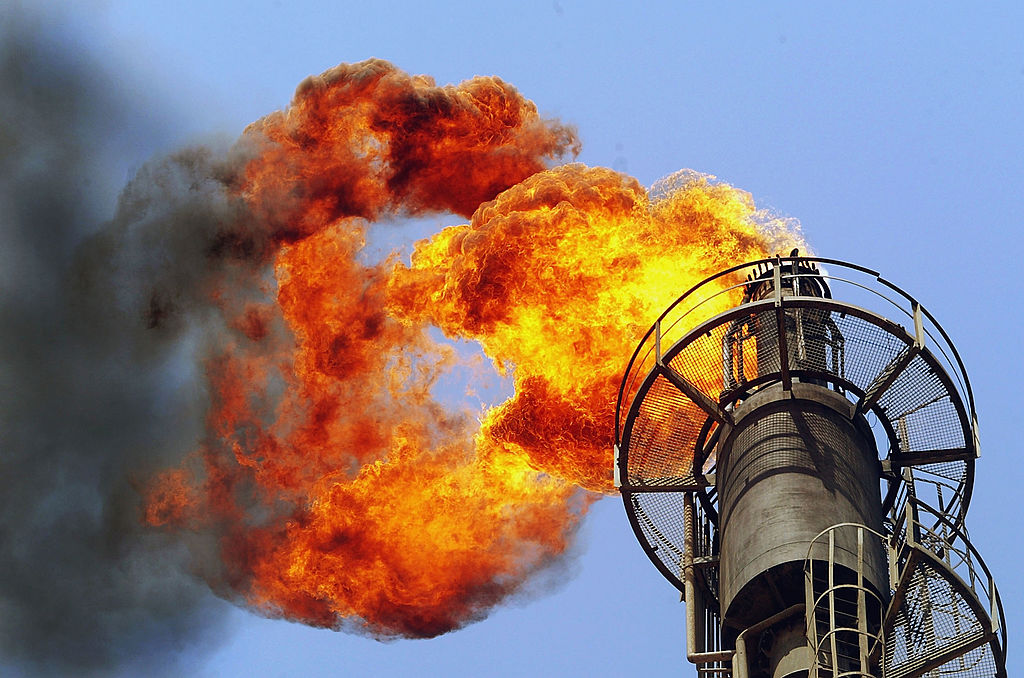One of the remarkable features of the last year is that despite the widening war in the Middle East and the best efforts of Opec to control supply, oil prices keep falling, with a barrel now trading on world markets for less than $70.
On the face of it, this is good news for Kamala Harris. Gas prices are a simple metric used by Americans to assess the course of inflation, since they scan them daily as they sit in traffic or drive past filling stations, keeping an eye out for bargains. And with prices now beginning to approach the levels they were at when Harris took office as Joe Biden’s vice president, this should be promising for the Democrats.
However, this optimism on inflation is counterbalanced by the usual warning that when oil prices slump, it could signal a looming recession. The signs of a softening in the US economy are growing ever more abundant, with last week’s employment report just the latest data point indicating that the boom is petering out.
Still, a slowing economy doesn’t make for a recession. With inflation falling but real wages still rising, it appears as if the US could be in for that rarely-found holy grail of both governments and central banks: a soft landing. As for the rest of the world economy, there’s still plenty of dynamism, with several countries in South and South East Asia, as well as Africa, expanding at impressive rates.
Still, with the three big beasts of the world economy – Europe, China and North America – either stagnant or decelerating, and North American oil and gas production rising faster than Opec can cut output, the global market for oil is oversupplied.
In addition, the substitution of coal for oil in the production of China’s electricity, and the pace of Beijing’s simultaneous transition to renewable energy, is proceeding faster than most anticipated, curtailing the country’s demand for fuel imports. Chinese consumers now buy more EVs than ICE cars, reducing household demand for oil. That will only accelerate, and the day in which the world’s second-biggest economy — or biggest, depending on the measure one uses — ceases to import any oil or gas may not be far off.
In theory, lost Chinese demand should be replaced by the new buying that ramps up as all those other emerging economies — which are currently doing so well — raise their own energy needs. Most of them rely on energy plants that burn fossil fuels, and will need to import oil and gas as they grow.
However, given how quickly the prices of Chinese renewable energy technologies are dropping, the energy transition may pick up speed in the developing world as well. For instance, quite unexpectedly, South Africa largely ended its chronic problem of electricity blackouts last year after businesses and households took advantage of cheap Chinese panels to install a massive amount of rooftop solar.
For now, the world economy remains powered mainly by fossil fuels, which still supply over four-fifths of the planet’s energy demand, oil being the largest component. So a resumption of strong growth in one of the big economies or the spread of war in the Middle East would still drive prices back up. But it may just be that we’re in the early phases of a transition out of the carbon age, which could steadily reduce the future demand growth for oil and gas. If so, the kinds of spikes we once knew may be a thing of the past.











Join the discussion
Join like minded readers that support our journalism by becoming a paid subscriber
To join the discussion in the comments, become a paid subscriber.
Join like minded readers that support our journalism, read unlimited articles and enjoy other subscriber-only benefits.
Subscribe